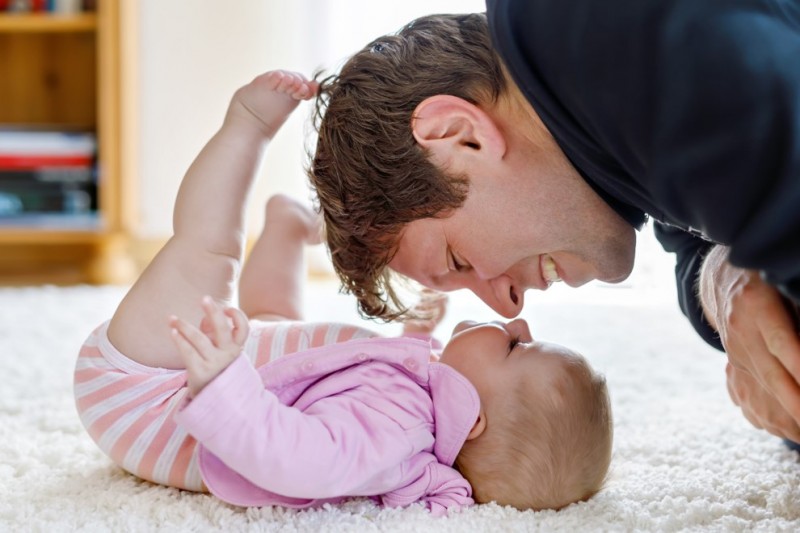All children love to play. Play is an important developmental milestone for every baby and child. There are many different types of play, and many fun ways to help your baby to learn and grow.
Dr Bec Thornton, our National Health Promotion Manager talks here about the importance of play to help your baby learn and grow – and how play can help protect against SIDS and sleeping accidents.

During the critical first 1,000 days of life, brain cells can make up to 1,000 new connections every second!
These contribute to children’s brain function and learning, and lay the foundation for their future health and happiness.
Young babies
Dr Bec Thornt on,says play is not only fun, it’s essential for brain development – play helps baby develop fine and gross motor skills, teaches social and emotional skills, and helps with language development.
Dr Bec Thornton, recommends that you choose play that is age-appropriate, for example, what a young baby may enjoy, an older child may find too simple and may disengage quickly.
Tummy time!
“Tummy time is really important for young babies as it helps to strengthen and develop back, neck and arms muscles,” says Dr Bec Thornton. “This allows baby to have better control of their head and sleep more safely during nap and sleep times, which is an important protective factor for SIDS and fatal sleeping accidents”.
“Tummy time also helps baby to see and experience their environment from different perspectives, which assists with brain development,” explains Dr Bec Thornton. “Get down on the floor and enjoy tummy time together where your baby can see your face”.
Dr Bec Thornton’s other tips include:
- Your baby LOVES you! Be hands on and enjoy playing with your baby.
- You are your baby’s key person – your consistent loving relationship lays foundations for learning and development.
- Talk to your baby as often as you can to promote language development – tell your baby what you’re doing, for example: “let’s find something to cook for dinner”.
- Make lots of eye contact and be expressive – make a funny face or poke out your tongue – your baby will love to copy you!
- Read to your baby – this lays the foundations for language development.
- Give baby different things to look at and play peek-a-boo – this helps to build your relationship as well as cognition (thinking), motor skills, social and emotional development. It can also help with separation anxiety as baby gets older and more aware of the world around them.
However, Dr Bec Thornton cautions against throwing and catching your baby in the air.
“A baby’s head is heavy in proportion to the body and isn’t well supported by their underdeveloped neck muscles,” explains Dr Bec Thornton.
“Vigorous bouncing games where a baby’s head can whip back and forth can cause the brain to rebound against the skull, which can cause serious injuries,” Dr Bec Thornton says.
“Be gentle and aware that despite the squeals and giggles coming from baby, there may be a safer game you can play together.”
What if baby doesn’t want to play?
Sometimes, baby doesn’t want to play – they may be bored of the game, unwell or perhaps ready to explore new things. Dr Bec Thornton says this is generally nothing to worry about, and recommends that you offer different games to engage in play with your little one.
“But, if you notice that your little one appears to struggle to maintain eye contact or displays minimal or an altered interest in their toys or play, speak to your maternal and child health nurse or doctor for advice,” advises Dr Bec Thornton.
“It’s also important to keep play spaces and sleep spaces separate,” say Dr Bec Thornton. “This will help you and your baby develop a healthy routine for play and sleep, and it will keep your baby safe in the sleep environment with the absence of pillows, soft toys and other objects”.
For more Safe Sleep Advice and pro-tips from Dr Bec Thornton subscribe to our newsletter.
Last modified: 18/1/23
